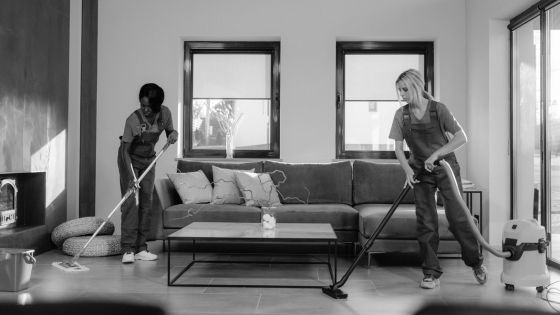Cleaning is a universal activity, yet it encapsulates unique traditions that vary fascinatingly from one culture to another. These rituals often reflect the values, climate, and lifestyle of a place and its people. In this exploration of global cleaning customs, we travel from the sun-drenched streets of India to the serene homes of Japan, uncovering the cultural significance behind keeping our spaces clean. And right here, we find the distinctive cleaning practices of phClean in West Des Moines.
The Spiritual Sweep: India’s Ritualistic Cleanliness
In India, cleanliness transcends mere hygiene; it is imbued with spirituality. The morning starts with sweeping the floor, a task that’s not just about cleaning but also about sweeping away negative energy. During Diwali, the festival of lights, this ritual takes on even greater significance as homes are cleaned thoroughly to welcome the goddess Lakshmi, bringing good fortune for the year ahead.
Purity in Practice: The Japanese Art of ‘Souji’
Japan holds cleanliness in high regard, considering it a path to spiritual and moral purity. ‘Souji’ is the practice of cleaning, deeply ingrained in Japanese daily life and even integrated into school curriculums. It’s not just about the act of cleaning; it’s about cultivating a respectful and mindful attitude towards one’s environment and community.
The Scandinavian Shine: ‘Döstädning’, or Death Cleaning
In Sweden, there’s a poignant and practical cleaning tradition known as ‘döstädning’, often translated to ‘death cleaning’. It’s a decluttering philosophy typically undertaken by older adults, where they gradually cleanse their homes of unnecessary belongings to ease the burden on their loved ones later on. It’s a thoughtful process that promotes a simplified, organized, and intentional lifestyle.
Scented Scrubbing: The Moroccan Hammam
The Moroccan hammam is more than a bathhouse; it’s a sanctuary of cleanliness and social gathering. Within its steamy walls, rigorous scrubbing rituals with black soap and a ‘kessa’ glove not only cleanse the body but also symbolize the removal of past troubles, paving the way for a fresh start.
The Flow of Cleanliness: Balinese Water Temples
In Bali, the water temple complex known as ‘Tirta Empul’ is home to a sacred cleaning ritual. Devotees immerse themselves in the holy spring water for a spiritual cleanse, believed to purify the soul and body. This ritual, which combines physical and spiritual cleaning, is an integral part of Balinese culture and spirituality. If you’re interested in exploring similar spiritual and physical cleaning experiences, you can visit http://www.yorlenyscleaningservice.com.
Lunar Dusting: The Chinese Spring Cleaning
In preparation for the Chinese New Year, families undertake a thorough home cleaning known as ‘sweeping the dust’. This is done to clear out the old and make room for new luck and prosperity. The timing is crucial: the cleaning must be completed before the New Year begins, as sweeping during the festivities is thought to sweep away the new year’s fortune.
Nature’s Broom: The American Spring Cleaning
In North America, spring cleaning is a tradition with practical roots. After long winters, homes are aired out and cleaned from top to bottom to remove the accumulation of soot and grime from heating. This ritual, while less formalized than others, signals the end of hibernation and the welcoming of spring’s renewal.
The Festive Flush: The Iranian ‘Khoneh Tekouni’
In Iran, the approach of the Persian New Year, Nowruz, signals a time for ‘khoneh tekouni’, which translates to ‘shaking the house’. Every corner of the home is dusted, polished, and organized. This comprehensive cleaning symbolizes shaking out the old year and starting anew with the coming of spring.
A Brush with Heritage: The Dutch ‘Schoonmaak’
In the Netherlands, the concept of ‘schoonmaak’ refers to a major cleaning, often undertaken in the spring. This goes beyond the routine, with special attention to parts of the home that might be overlooked in the daily hustle. From washing curtains to scrubbing floors, it’s a tradition of renewal that ensures every part of the home sparkles.
Around the globe, cleaning is not just a task but a tapestry of traditions, each thread holding its own story, belief, and practice. These customs serve as a reminder that cleaning has the power to refresh not only our surroundings but also our spirits. They show us that cleanliness is indeed next to godliness—or, at the very least, it’s a shared human experience that bridges cultures and generations. Through the simple act of cleaning, we participate in rituals that are as much about maintaining our homes as they are about honoring our heritage and embracing our shared humanity.













